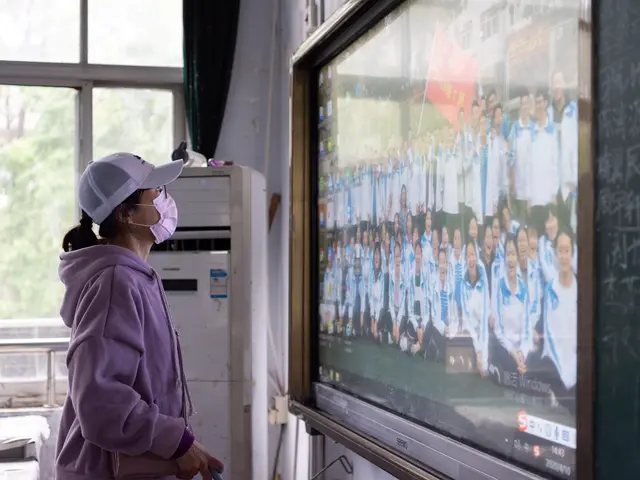It is important to expand young people's access to the best digital technology has to offer, and protect them from harm online amid COVID-19, according to an official with the UNICEF on Sunday.
The COVID-19 outbreak potentially exacerbates the risks faced by children and young people online, as they are spending longer periods on the internet than usual, said Douglas Noble, officer in charge of UNICEF China, at a dialogue co-hosted by UNICEF China and internet giant Tencent via video link.
"We need to listen to young people, who are a key partner in advancing the 2030 Agenda," Noble said, adding that it was also important to empower young people to know how to protect themselves."
During the 90-minute dialogue titled "Digital Youth: My Life, My Future," representatives of Chinese youth, experts, and opinion leaders also joined in to discuss how to ensure young people's online experience is safe, healthy, and empowering.
Ji Xiaonan, a 17-year-old student from Beijing, called for a shift from an adult-oriented approach that emphasizes "protection and control" to one that enables adolescents to foster better internet literacy.
"For parent-child interactions around the internet, we should avoid confrontations, and push for dialogue," Ji said. "Parents and children should see each other as equals, share ideas, learn together, and make rules about the use of the internet with each other.
Zhao Chen, 19, who is visually impaired, spoke about the challenges he encountered while surfing online, and proposed the use of artificial intelligence, and big data to help remove the barriers in the digital world for people with disabilities.
A recent survey, jointly released by the Department of the Protection of the Rights of Youth under the Central Committee of the Communist Youth League of China, and the China Internet Network Information Center, revealed that the rate of internet access among China's children and teenagers reached 93.1 percent in 2019.
It also showed that 46 percent of minors have been exposed to inappropriate content online, 42.3 percent have experienced verbal abuse, and 20.8 percent lacked awareness of online privacy protection.
 简体中文
简体中文







